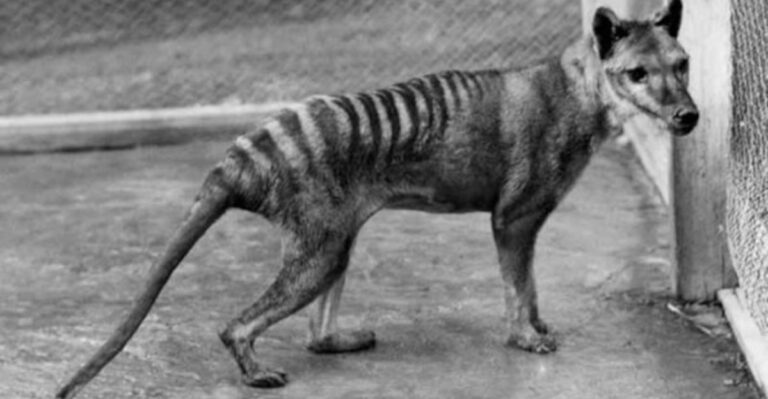10 Nutrition Habits That Can Improve Your Cat’s Lifespan
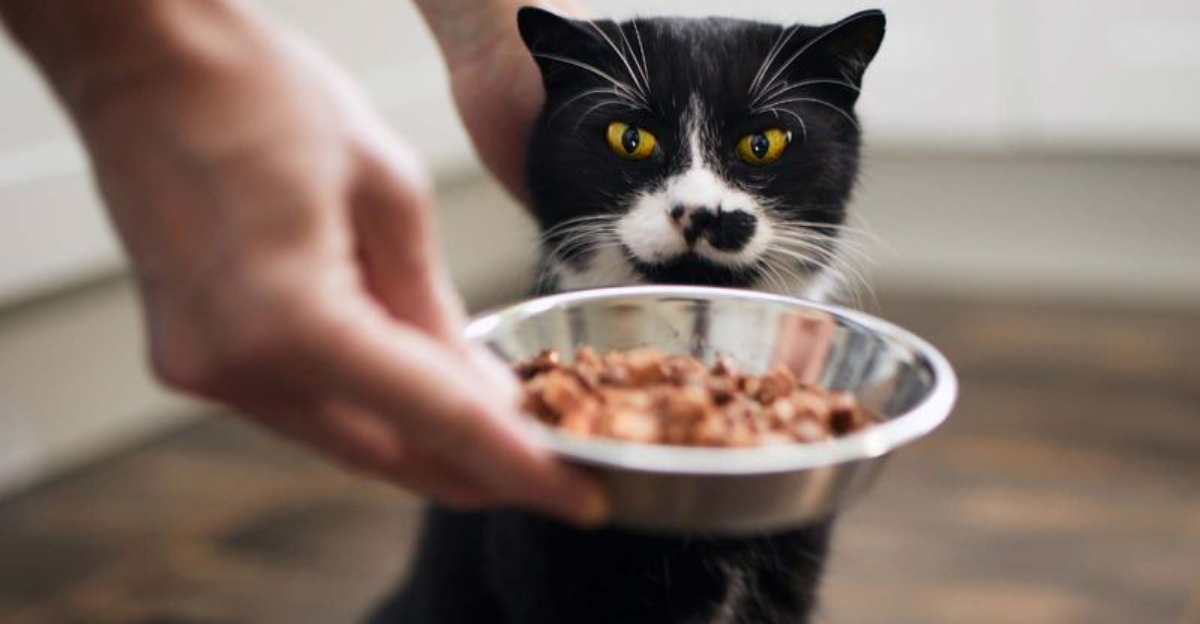
Caring for your cat’s nutrition isn’t just about filling their bowl. It’s about making choices that enhance their life and longevity.
Cats have specific dietary needs that are surprisingly easy to meet when you know what matters.
By incorporating these 10 nutrition habits, you can add years to your feline friend’s life while ensuring they’re as happy and healthy as possible.
Let’s explore ways to enrich your cat’s diet and promote a longer, healthier life.
1. High-Quality Protein
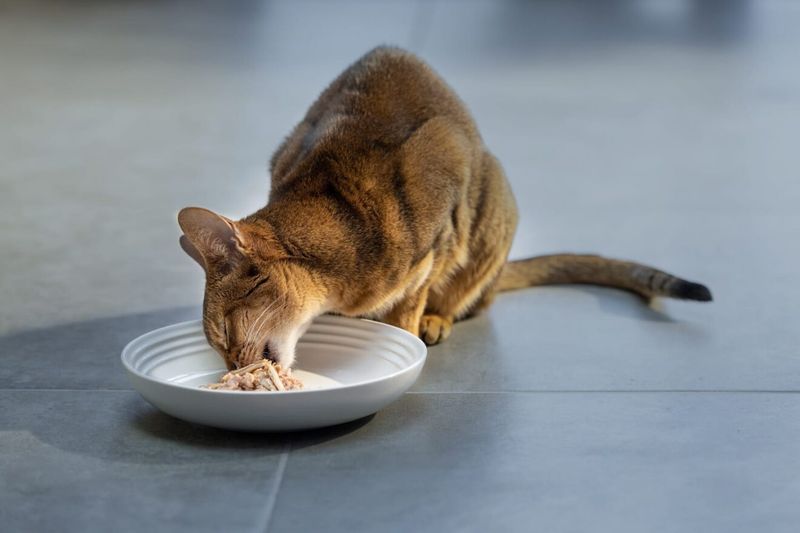
Cats are obligate carnivores, which means their diet should primarily consist of meat. Providing high-quality protein is crucial as it supports muscle maintenance and energy levels.
Choose premium cat food with chicken or fish as the main ingredient. Avoid fillers like corn or wheat, which don’t provide much nutritional value for cats.
Feeding your cat a protein-rich diet supports their immune system and overall health. It’s not just about what you feed, but the quality.
Opt for brands that prioritize high-quality ingredients. This nutritional habit can significantly impact your cat’s vitality and longevity, setting a solid foundation for their health.
2. Portion Control
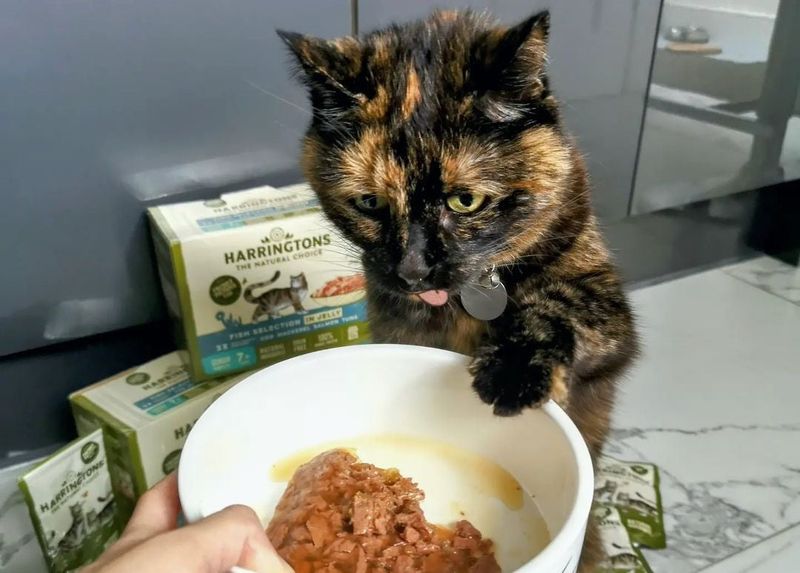
Portion control is vital for maintaining a healthy weight, which directly influences a cat’s lifespan. Overfeeding can lead to obesity, a common health issue in cats that brings complications like diabetes or joint pain.
Use a measuring cup to serve the right amount, tailored to your cat’s age and activity level.
Keeping a regular feeding schedule helps prevent overeating. Cats thrive on routine, and knowing when their next meal is coming can reduce anxiety.
This simple habit ensures they receive just the right amount of nutrients needed, without the excess calories that could harm their health over time.
3. Hydration Is Key
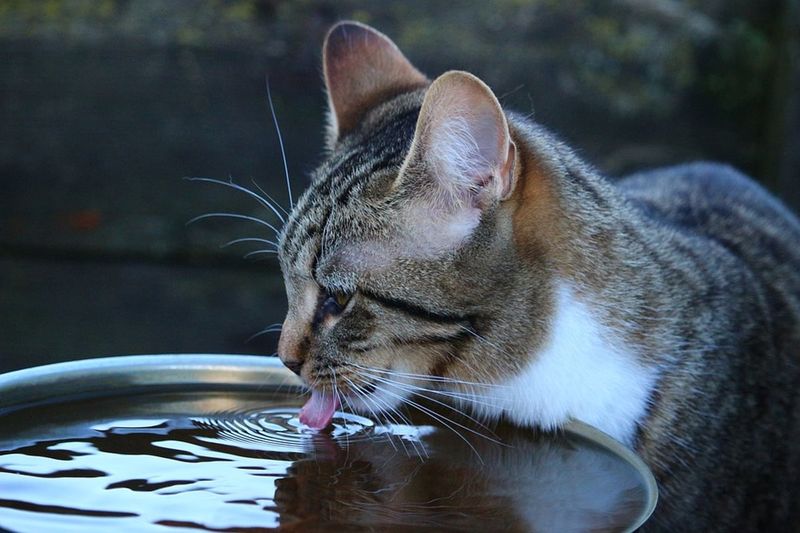
Cats often don’t drink enough water, which can lead to kidney issues over time. Encouraging hydration is essential, as water supports digestion and nutrient absorption.
Consider using a pet fountain to entice them to drink more. Cats are naturally drawn to moving water, which may prompt them to drink more frequently.
Place water bowls in various locations around the home to make access easy. Keeping water fresh and changing it regularly ensures your cat stays hydrated.
This habit not only supports their urinary tract health but also boosts overall well-being, helping them stay energetic and active.
4. Balanced Diet
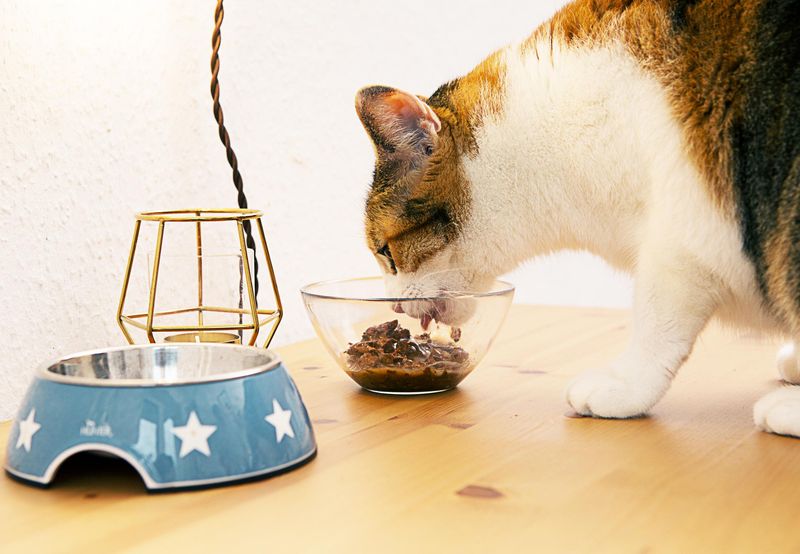
A balanced diet is necessary for providing all the essential nutrients your cat needs. Combining both wet and dry food can offer the best of both worlds.
Wet food provides moisture, which is excellent for hydration, while dry food can help maintain dental health.
Including a variety of ingredients ensures they get a wide range of nutrients. Look for foods that list real meat, vegetables, and grains.
Rotate flavors and types to keep meals interesting. This balance supports healthy organ function and keeps their coat shiny, contributing to a longer, happier life.
5. Avoid Human Foods
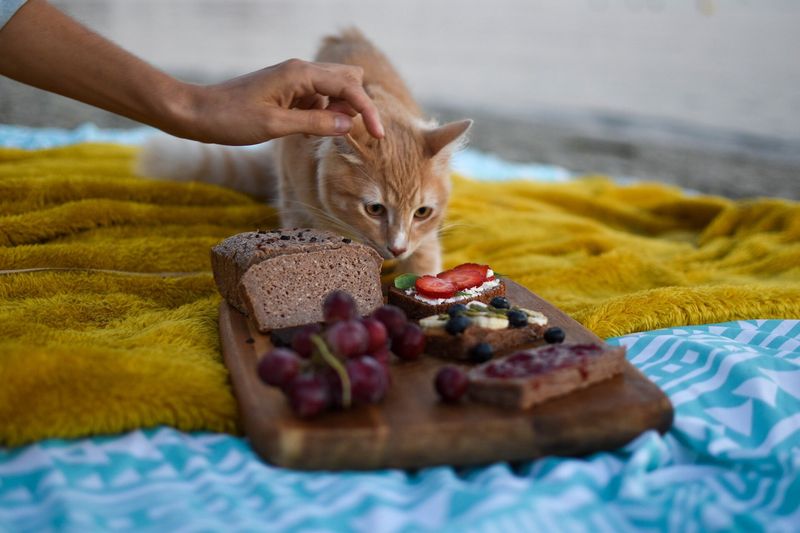
Human foods can be tempting to share, but they’re often harmful to cats. Foods like chocolate, onions, and garlic are toxic and should be avoided at all costs.
Educating everyone in the household about these dangers is crucial to prevent accidental ingestion.
Instead, focus on cat-friendly treats and snacks. Small bites of cooked chicken or specially formulated cat treats can be a safer alternative.
Keeping human food out of reach and explaining these risks can protect your feline friend from potential harm, helping maintain their health and extend their life.
6. Regular Vet Check-Ups
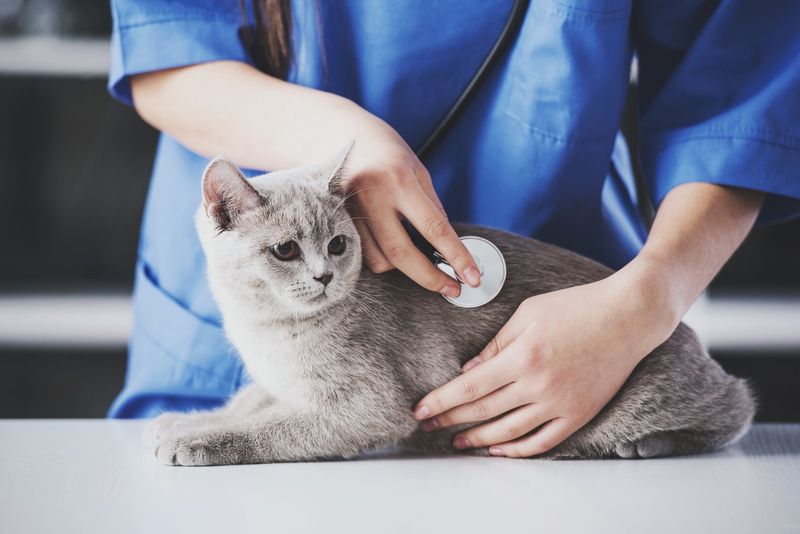
Regular veterinary check-ups are essential for detecting potential health issues early.
Vets can provide nutritional advice tailored to your cat’s specific needs and monitor their weight and overall health. Routine blood work and dental exams are part of comprehensive health care.
Building a relationship with your vet ensures you stay informed about the latest in cat nutrition. Regular visits help catch issues like dental disease or kidney problems before they become severe.
This proactive approach helps manage their diet effectively, contributing to a healthier, longer life for your cat.
7. Omega-3 Fatty Acids
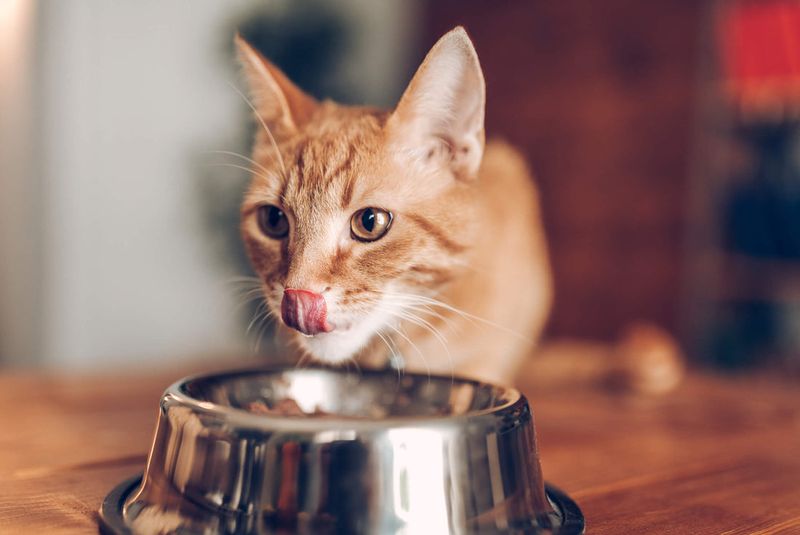
Omega-3 fatty acids are beneficial for cats, promoting healthy skin and a glossy coat.
They also support heart health and reduce inflammation. Incorporate these into their diet through supplements or omega-rich foods like fish oil.
These nutrients aren’t just flashy add-ons; they play a vital role in brain health, especially in aging cats. Regular intake can help maintain mental agility and physical health.
Discuss options with your vet to find the best way to include omega-3s in your pet’s meal plan. This small addition can have a big impact on their overall well-being.
8. Dental Care
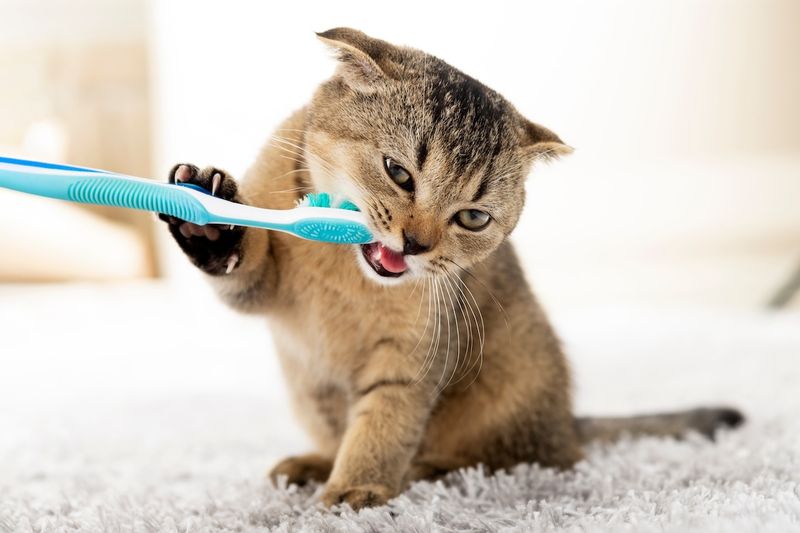
Dental health is often overlooked but plays a crucial role in your cat’s overall nutrition and health. Plaque buildup can lead to gum disease, affecting how your cat eats.
Brushing your cat’s teeth regularly helps prevent dental issues and keeps their breath fresh. Use products designed specifically for cats, like toothbrushes and toothpaste.
Even if brushing isn’t possible, dental treats and toys can help fight plaque buildup.
Regular dental care supports not just oral health but also contributes to their body’s overall functioning, making it an essential part of their nutritional routine.
9. Monitor Weight
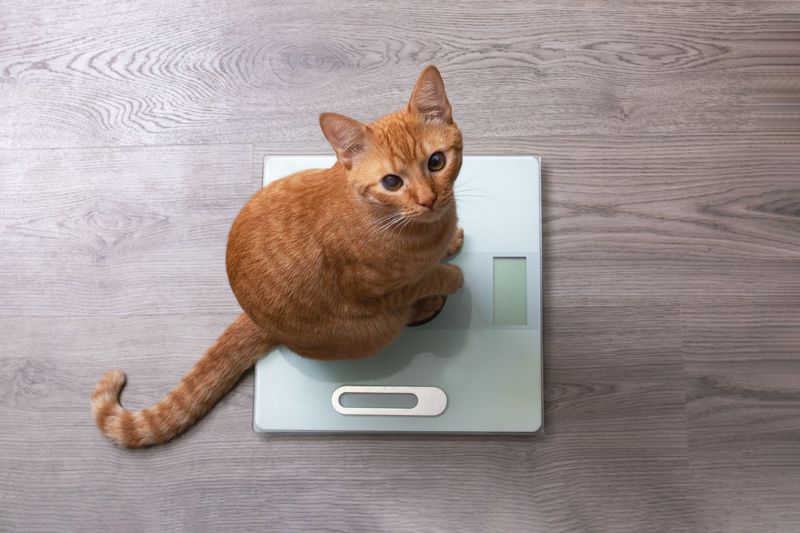
Monitoring your cat’s weight helps keep track of their dietary needs and adjust their food intake accordingly.
A healthy weight means less stress on joints and a reduced risk of diabetes. Regularly weighing your cat provides insight into their health and alerts you to potential issues.
Discuss your cat’s ideal weight with your vet and tailor their diet to maintain it. This practice ensures they receive the right nutrients without excess calories.
Monitoring weight is a vital habit that supports a longer, healthier life by preventing obesity-related diseases.
10. Use Quality Cat Food Brands
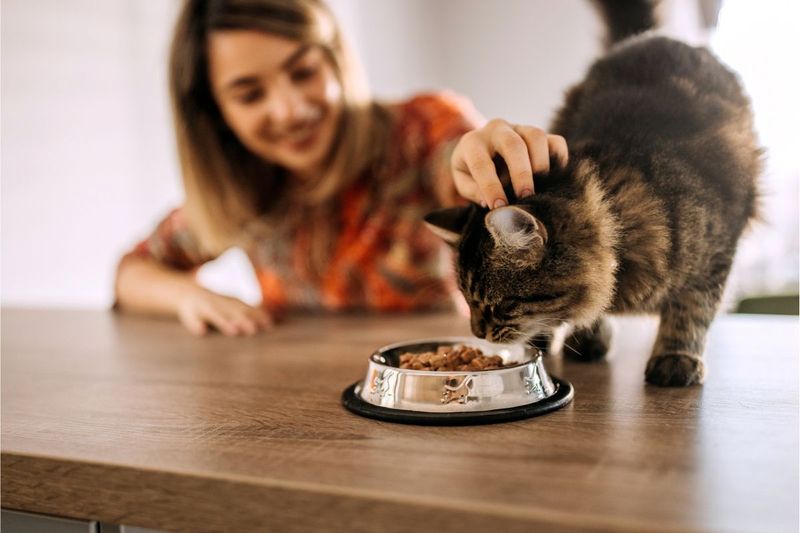
Choosing quality cat food is an investment in your cat’s health.
Premium brands often use better ingredients, including real meat and fewer fillers. These foods provide balanced nutrition, supporting all aspects of your cat’s health.
Check labels for essential nutrients and avoid artificial additives. Consult your vet to find suitable brands for your cat’s needs.
Investing in high-quality cat food ensures they get the nutrients they require, promoting a longer life. Remember, the quality of food directly impacts their quality of life, making this a crucial nutritional habit.


